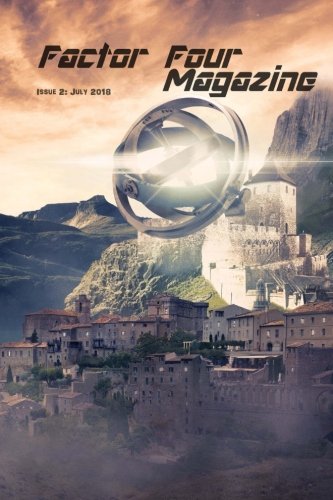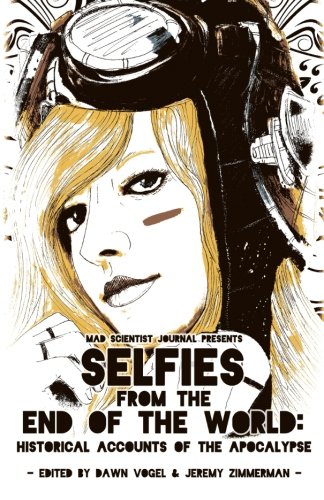Drama, Investment, and Colson Whitehead's The Noble Hustle
/I've written before -- maybe once? -- in a small dose about creating narrative tension, or drama, without using character conflict. When I teach entry-level storytelling stuff, I explain that narrative is propelled through conflict, and conflict is created when a character has a desire they are somehow impeded from realizing (whether by another character, a separate external force, or the character itself). A character who is thirsty and gets a glass of water is not a story, really. A character who is thirsty but can't have water because they are in a desert introduces conflict. How the character responds to that conflict informs our understanding of them and pushes the story forward. Does this character begin searching for oases? Do they start to dig, hoping to hit something that way? Do they try to find a way to contact other people? Do they find a cactus? Do they give up and let themselves die? Each of those responses creates a different narrative arc, inhabited by a different character, and each keeps our eyes on the page.
But that's just plot. If we're hitting advanced storytelling stuff, you have to ask, "why do we care about the plot so much?" And from what I've learned and observed, it's because we're invested in experiencing and resolving (or failing to resolve) tension. We don't enjoy the conflict itself, I don't think. I don't know about you, but I find conflict unpleasant. What enjoy about narrative conflict is the inherent tension of that space between a character wanting something and having it, and discovering how that tension is or fails to be resolved.
And when you get to really advanced storytelling stuff, you start looking for ways to create tension, to play with the friction that accumulates in the liminal spaces between two forces that rub against each other (desire, impediment), not just in your characters, but also in your readers, and not just through conflict, but by any means necessary. I really started thinking about this after stumbling across this tumblr post.
So, I started reading Colson Whitehead's "The Noble Hustle" over the Labor Day weekend. I had to stop periodically just to unwind myself from it a little bit, but I never wanted to stop. The book is a true or mostly true account of Whitehead's experience playing in the World Series of Poker for a writing assignment. There's not much in the way of plot and little in the way of conflict, but I've been riveted, anxious, and gleeful throughout.
I finally realized why: Whitehead is doing really advanced storytelling stuff. I'll say more beneath the cut.
A lot of people had different entry points for humorous non-fiction, but mine was David Foster Wallace. Essays like "Consider the Lobster" and "A Supposedly Fun Thing I'll Never Do Again" provided an insightful critique of social processes, elegant deconstructions of genuinely difficult, concrete and metaphysical problems, a light touch with a joke, and a dash of literary flourish. Then Wallace killed himself, and suddenly an essay obsessed with the difference between feeling the pain that is killing you and experiencing it (Lobster), or one that simply can't stop considering the slow march toward death (Fun Thing) struck me with a different weight.
A few weeks ago the movie Hook came on. You can imagine what went through my head.
Am I suggesting that it's time to put Colson Whitehead on suicide watch? Lord, no. That's a level of presumption I wouldn't even pretend to. I can see how I'm not being very clear about it, though.
What I'm talking about is a developing awareness in my literary consciousness of the tension between humor and pathos, and the role Wallace and Williams played in how I understand it. It's not a revolutionary idea, the sad clown. It's a cliche, really. But the easy way to think of it is that humor is the mask that hides the pathos, that distracts from it. On stage, you smile. Backstage, you mope. And that's not quite what I'm talking about. There is tension there, between the image and the reality, the mask and the face, but it's an easy sort of tension, and it's one that does not necessarily involve the audience. If you don't peel away the mask, or don't have the opportunity to, the tension can never be tangible for the viewer. What I'm thinking of is a kind of tension that is necessarily created in the audience, wherein humor is the transmission vector of the pathos, wherein the joy and the pain necessarily rub against each other.
Take this example, from "Consider the Lobster:"
"The more important point here, though, is that the whole animal-cruelty-and-eating issue is not just complex, it’s also uncomfortable.... As far as I can tell, my own main way of dealing with this conflict has been to avoid thinking about the whole unpleasant thing.... [When boiled] the lobster acts as if it’s in terrible pain, causing some cooks to leave the kitchen altogether and to take one of those little lightweight plastic oven timers with them into another room and wait until the whole process is over."
That's a bit of a chop job from the original to get the two relevant parts of the quote together. The image of the at-home-cook power-walking away from The Pot of Boiling Death while cradling the cheap plastic device that will ding cheerily to let them know when the transformation from Dear-God-Get-Me-Out-of-Here to Dip-Me-In-All-the-Butter-NOW is complete is a cute one. It makes me chuckle. I see myself in that image. But there's also the image there of the thing in pain, literally dying while the people around it willfully avert their eyes. I can see Wallace in that image, correctly or incorrectly, not hiding behind a mask at all. I still laugh, of course, because the joke is funny, but I also get that the laughter is transmitting both joy and pain, rubbing against each other. Without the joy, the pain may not be expressible.
And I eat it up, to make a pun. Everybody does. There's a reason Wallace is so damn popular.
This is what Whitehead is doing in The Noble Hustle, except without Wallace's deeply existential, literally life-or-death crisis. In fact, if Wallace's essays show an obsession with death, Whitehead's book actually demonstrates a macabre obsession with life. Take the following early quote, as he's explaining the concept of the Straight in poker:
"What do I see when I'm dealt a straight--five cards in a series, like 5-6-7-8-9, not all the same suit? To my tribe, that's five misfortunes in a row, but not the same brand of misfortune. Let's say one afternoon, one after the other in sequence, you: forget the name of someone you've met several times; e-mail an important document late; require an emergency root canal; overcook the risotto; and pick an argument with your partner ... That's five misfortunes, but a mix of social, professional, and health-related misfortunes."
The straight is a good hand, but Whitehead relates to this fortune through folly. The list is amusing -- and Whitehead's jokes fly fast and hit frequently throughout -- but that humor transmits a kind of misery. The reader laughs, but is not comfortable, and keeps reading to continue living in that liminal discomfort. At the same time, what Whitehead is describing is a lived experience, not an existential one. These are five misfortunes, yes, but what do they add up to? A worthwhile hand. Misery is a way of living for Whitehead, or at least his non-fictional narrator, and is somehow fulfilling for him. There's also tension there, in asking the reader to understand that.
What really kept me tied to the book, though, wasn't the mere fact of the tension. It was the need to have that tension resolved. I was never sure until the end which kind of book I was reading, which side of the knife's edge -- joy or misery -- I was meant to favor, how I was supposed to interpret the misery, how much I was actually supposed to laugh at the jokes. The need to get a grasp on those questions drove me relentlessly through a book that has no real plot or conflict otherwise. The tension isn't in the pages. It's in the reader. And if you'll excuse me a second pun, I found myself going all-in.




